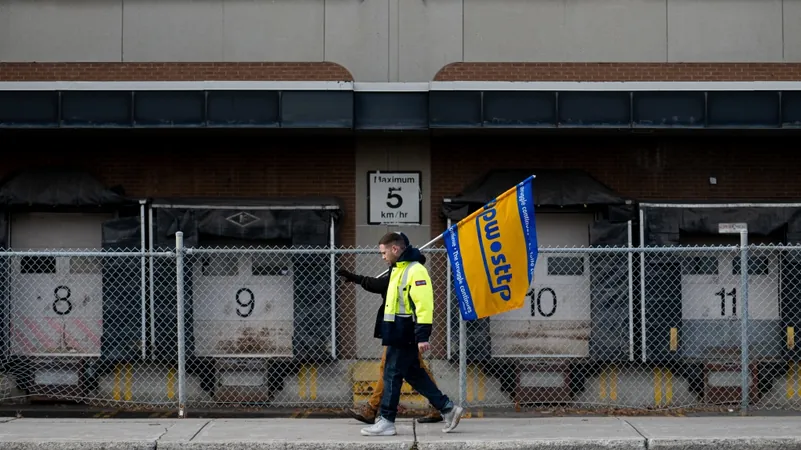
Canada Post Strike Intensifies as Negotiations Stall – Labour Minister Steps In
2024-11-27
Author: Sophie
The ongoing strike at Canada Post shows no signs of abating, with key parties reportedly "too far apart on critical issues" to reach an agreement, according to Labour Minister Steven MacKinnon. This announcement has raised concerns among postal workers and the public alike, as the disruption continues to affect mail and parcel delivery services across the country.
In a recent statement posted on the platform X, Minister MacKinnon acknowledged the difficulties in negotiations, revealing that the special federal mediator has temporarily suspended mediation efforts. "This pause in mediation activities will hopefully permit the parties to reassess their positions and return to the bargaining table with renewed resolve," he wrote. The Minister has emphasized that it is ultimately up to the parties involved to find a resolution, urging them to reconvene in his office.
While the strike began nearly two weeks ago, tensions escalated over demands from the Canadian Union of Postal Workers (CUPW). The union is pushing for salary increases to match inflation rates, more paid medical days, enhanced benefits, and a commitment from Canada Post not to utilize private contractors for deliveries. The labor relations manager’s comment regarding contracting out parcel delivery on weekends was perceived as a threat by CUPW negotiators, further complicating the discussions.
In an effort to address staffing shortages, CUPW has also demanded that Canada Post hire more full-time employees, arguing that the current trend of increasing temporary hours amid retention challenges is unsustainable. Meanwhile, Canada Post maintains that approximately 95% of its delivery personnel are already full-time despite facing severe revenue declines and stiff market competition.
The postal service has reported losses exceeding $3 billion since 2018, including a staggering $315 million pre-tax loss in the third quarter of 2024 alone. Canada Post claims that it has already delivered around 10 million fewer packages since the strike’s inception, which is based on last year's statistics.
As the days stretch on with no resolution in sight, the importance of a swift agreement becomes even more crucial. Canadians rely heavily on mail and parcel services for personal and business needs, and the ongoing disruption underscores the need for meaningful negotiations to restore normal operations. Both sides will need to act quickly, as public patience may soon wear thin.









 Brasil (PT)
Brasil (PT)
 Canada (EN)
Canada (EN)
 Chile (ES)
Chile (ES)
 España (ES)
España (ES)
 France (FR)
France (FR)
 Hong Kong (EN)
Hong Kong (EN)
 Italia (IT)
Italia (IT)
 日本 (JA)
日本 (JA)
 Magyarország (HU)
Magyarország (HU)
 Norge (NO)
Norge (NO)
 Polska (PL)
Polska (PL)
 Schweiz (DE)
Schweiz (DE)
 Singapore (EN)
Singapore (EN)
 Sverige (SV)
Sverige (SV)
 Suomi (FI)
Suomi (FI)
 Türkiye (TR)
Türkiye (TR)